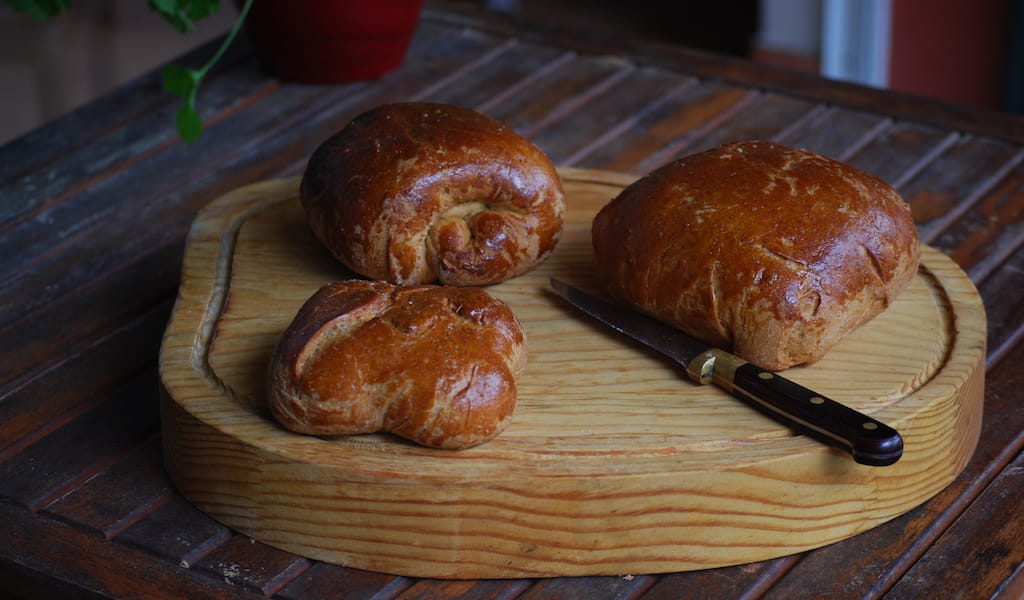“No kid without a mona” is the current refrain of Gremi de Pastisseria de Barcelona (the Barcelona Pastry Guild) – it’s their response to the coronavirus quarantine interrupting this Easter culinary tradition (godparents normally give the dessert as a present to their godchildren around the holiday).
The guild, which includes 200 patisseries in the province of Barcelona, has launched a campaign to bring this slogan to fruition. The initiative is two-fold: first, they followed strict hygiene measures to make these delicious edible gifts that godparents ordered online or by telephone to be delivered to the homes of their godchildren last Monday, the Easter holiday called Pascua Florida. But the guild also proposed to replicate the celebration after confinement, on June 1, the date of another holiday called Pascua Granada. Assuming the quarantine is lifted by this date (as we very much hope it will be), families, grandparents, godparents and other relatives will finally be able to meet again around a table to share a mona.
The aim of the Pastry Guild is not only to help kids, but also to salvage the work of hundreds of chocolate and pastry artisans, some of whom have already been working for months on their magnificent creations. Easter monas in Catalonia are either elaborate chocolate figures, which became popular in the 20th century, or brioche cakes aromatized with orange blossom water (orange trees usually flower at this time of year), which are more traditional. The word “mona” was first documented in Spain in the 15th century and is related to mouna, the name given to aromatic round cakes of different kinds typical in the Mediterranean area.

But in both cases, whether chocolate figures or cake, monas are always decorated with colorful feathers, sometimes boiled or chocolate eggs and little yellow chicks that represent the return of life in spring. In fact, many families decided to make their own monas (the cake version) at home during the confinement, as a way to keep their hands busy and their spirits high, and also to be able to celebrate the tradition as best they could (especially if they don’t have one of the guild’s 200 patisseries nearby).
The monas made out of chocolate range from simple molded figures to really large and elaborate chocolate sculptures. It often takes specialized chocolatiers at least three hours of work to make only one. Some are extraordinary artistic creations while others pay homage to more popular themes, like the characters of Star Wars or Frozen. This difficult work has morphed into a whole spectacle in Barcelona, with the windows of numerous patisseries and cake shops festooned with monas – the cake variety but particularly the fantastical chocolates figures. This year, the windows are not as cheerful as usual, but inside many obradores (the patisserie kitchen and work area) are still producing.
The beloved Bomboneria Pons, a small family-run chocolate workshop in Sants, began work on their chocolate figures, which they sell to regular clients as well as other shops, in February. This year, they had special opening hours to sell their monas to nearby customers. But perhaps more popular is their delivery service, which will run through June to cover the second celebration as well.

One of the classic leaders of the mona spectacle in Barcelona is the Escribà family, whose first shop opened in 1906 in the Gran Via de les Corts Catalanes. They have always made Easter monas, year after year, even during the Spanish Civil War and the post-war period. Of course, this is year was no different: They switched to delivery after the quarantine was enacted, and their artisanal monas have already sold out.
This year has been a tough one for everyone: The whole country has been confined and the economy has been in hibernation since the arrival of the coronavirus. So, like the guild says, no child without a mona and no patisserie without our support, if not for last week’s Pascua Florida, maybe (fingers crossed) for Pascua Granada on June 1!
 April 2, 2024 Grandma’s Folar Recipe
April 2, 2024 Grandma’s Folar Recipe
Folar is the generic name given to traditional Easter sweet bread in Portugal. Making it […] Posted in Lisbon April 1, 2024 Pastiera
April 1, 2024 Pastiera
Like the Proustian madeleine, sweets can stir up all kinds of feelings in the minds of […] Posted in Naples April 15, 2022 Springtime Fêtes
April 15, 2022 Springtime Fêtes
Growing up with a Midwestern Protestant mom and a Montreal-born Jewish dad, my family’s […] Posted in Marseille
Published on April 20, 2020
Related stories
April 2, 2024
LisbonFolar is the generic name given to traditional Easter sweet bread in Portugal. Making it from scratch is somewhat of a long process, but being confined due to the coronavirus crisis, we seem to have a bit more time on our hands than expected. My family’s folar recipe is from my grandmother Felismina, who was…
April 1, 2024
NaplesLike the Proustian madeleine, sweets can stir up all kinds of feelings in the minds of those who eat them. In Naples, struffoli (small, round doughnuts glazed with honey) and cassata (sponge cake with ricotta and candied fruit) speak of Christmas, while chiacchiere (sugar-dusted fritters) and sanguinaccio (literally “blood pudding,” but actually made of chocolate)…
April 15, 2022
MarseilleGrowing up with a Midwestern Protestant mom and a Montreal-born Jewish dad, my family’s holidays wove together traditions, much like a braided challah bread. We topped our Christmas tree with the Star of David and served matzo at Easter brunch. More cultural than religious, our celebrations weren’t restricted to one faith or another. What mattered…


















































































